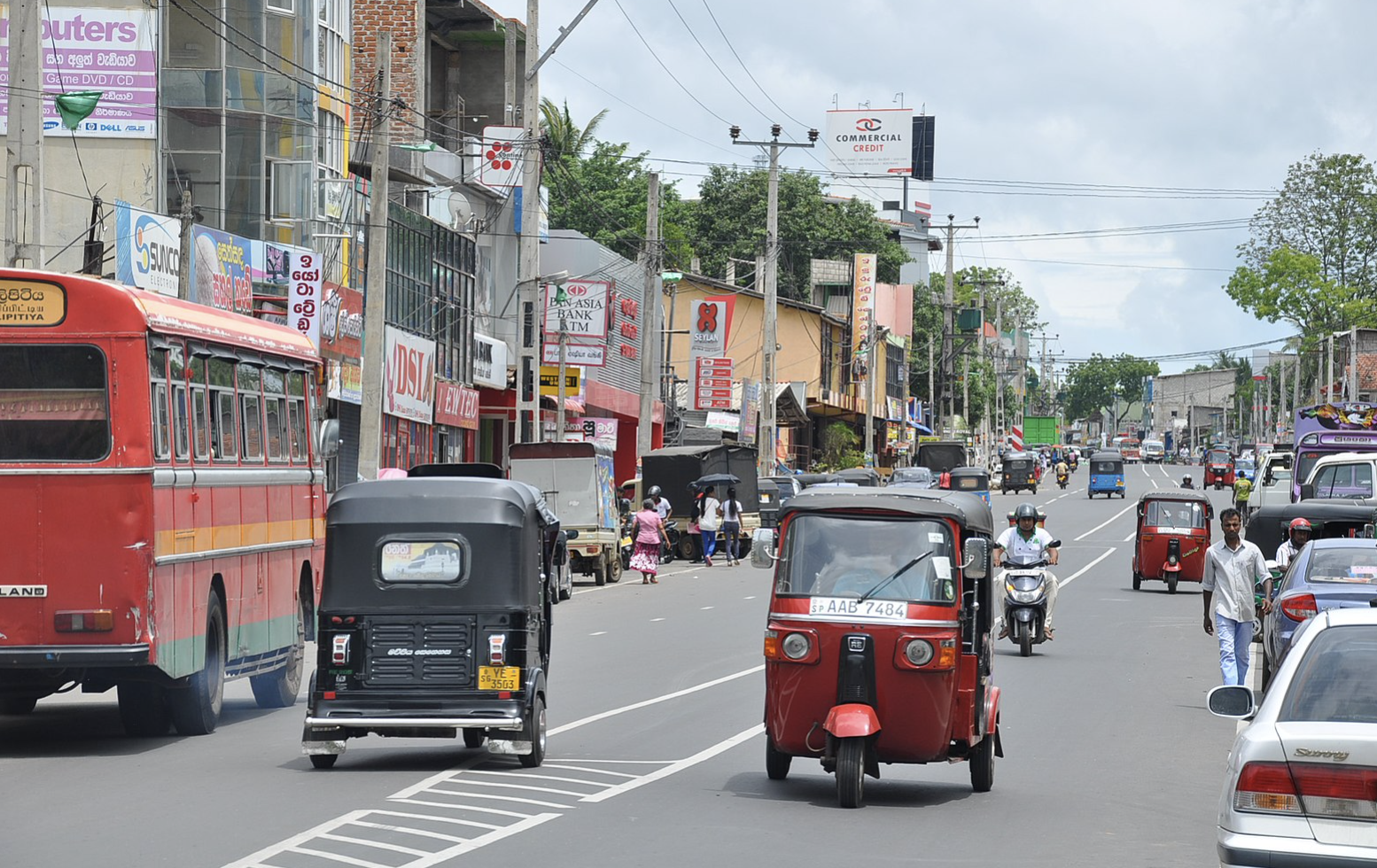Sri Lankan taxi drivers protest 'easy' driver's licenses for foreigners
The government has introduced a measure to facilitate the issuing of temporary driver's licences upon arrival at Katunayake International Airport. Following the 2019 church attacks and the COVID-19 pandemic, the tourism sector is experiencing a fragile recovery. The new provision risks undermining self-employed workers.
Colombo (AsiaNews) – In recent weeks, the Sri Lankan government has faced a series of strikes and protests in various sectors of the economy. The latest was triggered by a group of drivers calling themselves "tourism taxi service personnel," many of whom are self-employed.
Among the reasons for the protests is the government's recent decision to grant driver’s licenses to foreigners upon arrival at Bandaranaike International Airport (BIA) in Katunayake, a suburb of Negombo.
These service providers have threatened to paralyse the entire tourism sector unless the decision is revoked, starting with the international airport, where a largely unregulated "mafia" has operated for years.
Since 3 August, the Ministry of Transport and Highways has operated a temporary driving licence issuance counter for foreign visitors at the airport, aiming to streamline and improve the process.
Previously, tourists arriving in Sri Lanka had to go to the Motor Traffic Department in Werahera, Colombo, to obtain a temporary driving licence. The new initiative aims to address the waste of time and money caused by the previous process.
According to senior officials at Airport and Aviation Services (Sri Lanka) (Private) Limited, “Tourists arriving in Sri Lanka can obtain their Temporary Driving License immediately upon landing, making it easier than ever to explore our island”.
This process allows visitors to plan their travel times and routes "without having to pay high transportation costs."
In the past, there have been “complaints that tourists were being charged exorbitant prices for transportation, particularly by tuk-tuk drivers.” Now, “Tourists only need to have a driving licence from their country of origin with a validity period of at least one year."
Sujith Almeida, 52, Anura Ratnayaka, 45, and Nishantha Alwis, 42, spoke to AsiaNews about the reasons for the protest and the problems associated with the new policy.
"We are aware," they say, "that international driving licenses are a common feature of modern travel, but they are only issued for a limited period,” and “are not issued upon arrival.
"What has happened in Sri Lanka is that those who avail themselves of this benefit do so not for convenience, but for economic reasons. Tourists visiting Sri Lanka currently do not spend much, especially their daily expenses, which are sometimes lower than those of the local population.
“The government's attempt to play with tourist arrival numbers, with visa-free travel, casinos, with these driving licence regulations, and even plans to rent islands to foreigners, are disconcerting. Very soon, we will lose our jobs as tour drivers.”
“In 2019, in the aftermath of the Easter church attacks, the tourism industry ground to a halt, and we've had to work in the informal sector because we had no viable alternatives. Most of us had leased vehicles to work in this sector, and since we couldn't pay the full rental fee, our vehicles were seized, even though we had paid 50-75 per cent of the rental fee.
“In 2020, we suffered a similar impact due to the airport closure and lockdowns caused by the COVID-19 pandemic. Subsequently, due to fuel shortages, our sector suffered severe repercussions."
Starting last year, there has been some slight improvement, so much so that operators have been "able to gradually resume their activity." However, they warn, "with the government's decision to issue temporary licenses, we are being hit again."
According to senior officials with the Department of Motor Vehicles, "between 3 and 7 August, a total of 1,338 licences were issued to foreign tourists" by the relevant airport offices.
For economic experts Navin Semasinghe and Sujani Kahawita, the government, "although it cannot be blackmailed by union threats, is certainly aware of the economic impact on small entrepreneurs who make a living from this sector.”
They warn that, "The social repercussions on local communities are already being felt, especially in the coastal cities of the south and east”.
For this reason, the authorities "would be wise to keep this growing discontent under control, so that the tourism industry, with its multimillion-dollar spin-offs doesn't explode in the country's face.”
12/02/2024 13:34
15/03/2021 17:19







.png)










